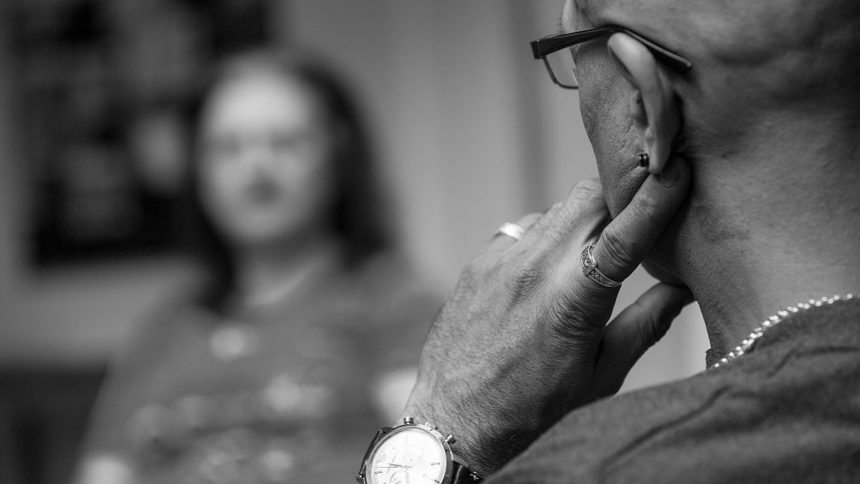According to the director of psychology at the University of Colorado Hospital Outpatient Psychiatry Service Jonathan Shedler, people often disregard talk therapy and because of assumptions about psychodynamic counselling. Writing in Psychology Today, he asserts that many people believe that therapy will not provide immediate help, will take years of expensive, and is nothing but an unproductive and time-consuming navel-gazing exercise.
However, nothing could be further from the truth as research has shown that talk therapy is very effective in helping persons deal with mood disorders, depression, and other disorders. According to Shannon Kolakowski a psychologist and author of “When Depression Hurt Your Relationship”, counselling is an effective evidence-based treatment. In fact, Principal Deputy Director of the CDC Anne Schuchat asserts that therapy is more effective than medication at treating depression, anxiety and mental health issues such as OCD. Moreover, apart from providing healthy long term coping strategies, it does provide fairly quick relief as long as you are clear with the therapist on what you want to get out of therapy.
Common Ways of Measuring Progress in Therapy
One of the biggest misconceptions people have about talk therapy is thinking that it works just like normal prescription medication. Unlike when you are seeking medication for something like headaches or a cold, therapy is not always quick but that does not mean that it does not work. Since you may probably have years of struggle and hardship, you may require many sessions before you can see any meaningful progress with therapy. Nonetheless, there are several ways of measuring the success of therapy that include:
A decrease in the Severity of Symptoms
While you may not feel like all your problems have gone away after a few sessions, if you are better able to manage them, talk therapy may just be working for you. For instance, if you went into therapy to get your anxiety issues under control, you can say you are seeing progress when anxiety is interfering with your daily activities less frequently or the attacks have significantly reduced in intensity and duration.
Objective Measurements
Some therapists have scales known as the Patient Health Questionnaire that they use to assess the worsening or improvement of patient symptoms. You can also track improvements on your own even without a specialized scale. You can, for instance, rank your anxiety levels on a scale of 1 to 10 and determine if they are decreasing or increasing, or how much distress they are causing.
Behavioural Change
One of the most important measures of the progress in talk therapy is behavioural change. Talking to Self Magazine, clinical associate professor and psychologist Kristine Luce of Stanford University School of Medicine asserts that she uses behavioural change to measure progress in practice. Measuring behavioural change could be effective for anything from increasing performance or social tasks for persons with social anxiety or decreasing purging or binge eating in persons with Bulimia. While it is never easy to attain behavioural change, it is one of the most effective ways to measure gradual improvement.
Non Tangible Measures
Self-Awareness and Insight
The non-tangible measures are some of the metrics that probably make you believe that talk therapy does not work. Metrics such as insight and self-awareness are impossible to measure as they are not tangible. Nonetheless, these measures are still important as they help myou understand your behaviour, your feelings, and yourself better than you did before starting your sessions.
Application of Mental Health Tools
You may measure your progress with therapy by measuring your implementation of mental health tools provided by the therapist. For instance, if you are applying the skills and tools you have learned in therapy so that you are now better at making decisions, trusting yourself and setting boundaries without needing validation, then therapy is working. Some therapists will ask you to have a diary car to record your interactions with others, behaviors, and emotions and skills you use in those moments. In such an instance, having awareness is in itself a sign of successful therapy.
Less Need for Therapy
If over time you do not need to see the therapist as much or as regularly as before, if you are more comfortable dealing with issues on your own, then therapy is working. According to Stanford Clinical psychologist Riley Cropper, you may not reach your goals right away. Nonetheless progress towards your goals is a good measure of the success of the counselling.
How to Get the Most Out of Talk Therapy
Given how challenging it is to measure the effectiveness of therapy, it is always critical to come up with a list of things that you need help with and ask the therapist to explain how progress will be measured. The list could include things such as:
1. Issues in your relationships or in the family
2. Suicidal thoughts or thoughts of self-harm
3. Troubling feelings, irritability, anxiety anger, and
4. Changes in sleeping and eating habits.
It is absolutely critical to be upfront on the expectations you have with talk therapy. Having clear expectations from the start helps the therapist understand your needs and how to go about helping you improve. You also need to ask questions about the different types of therapy on offer and what the therapist thinks would be the best approach for your issues. This will also be helpful in helping you decide if the therapist is a good fit for your needs, since there are more than fourteen types of mental health specialists from psychiatric nurses, counselors, social workers, psychologists, and psychiatrists among many others. You should also ask how long the therapy will take, though the therapist can determine only after doing a few sessions with you.

